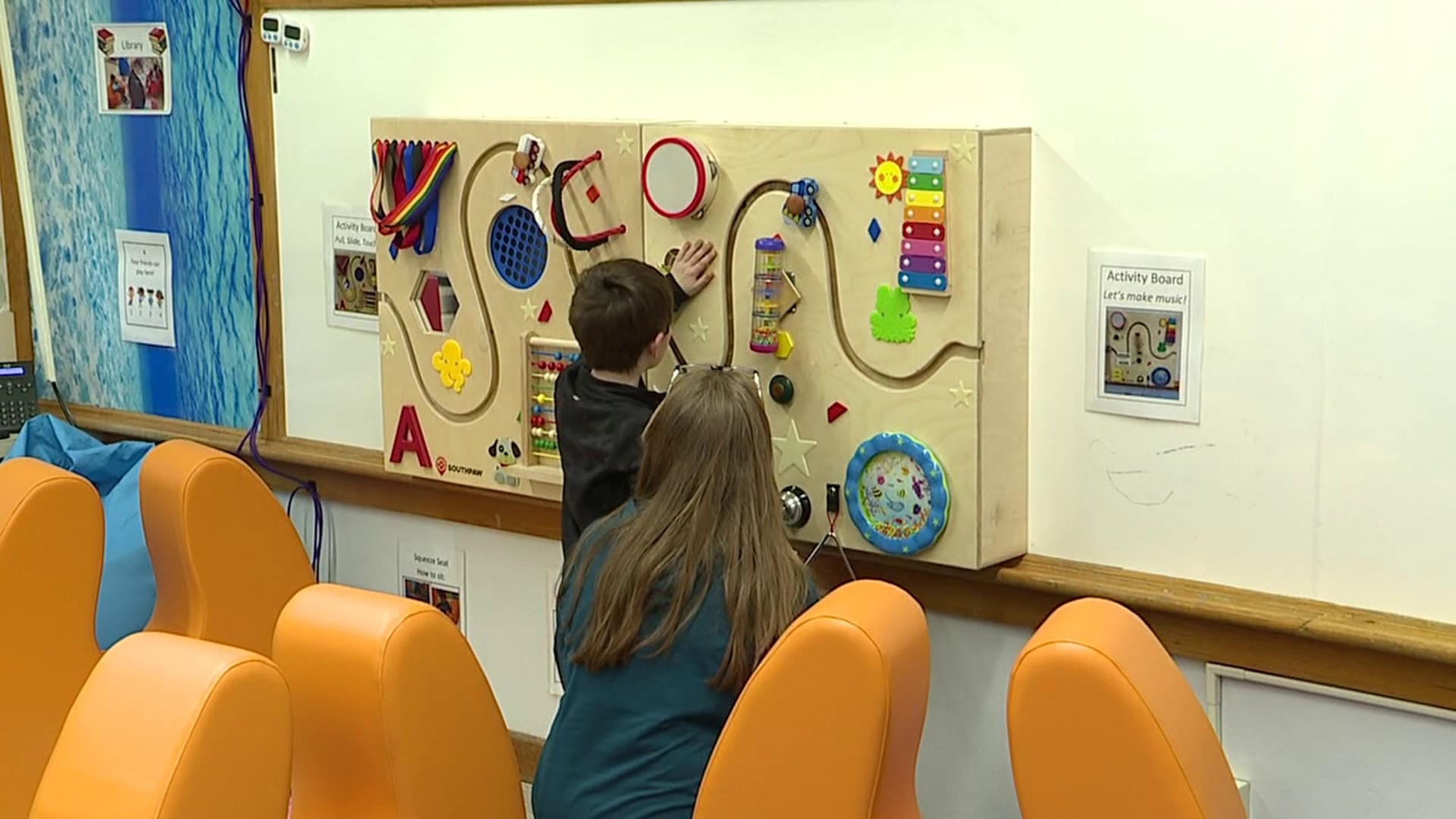Interactive science experiments for kids are engaging activities that promote hands-on learning and scientific exploration. In these experiments, children can observe and participate in experiments to understand scientific concepts.
Exciting and educational, these experiments foster children’s curiosity and encourage critical thinking skills.

Credit: www.wnep.com
Engaging Scientific Exploration
Engaging scientific exploration through hands-on learning is essential for promoting curiosity and critical thinking in kids. By conducting interactive science experiments, children are able to actively engage with various scientific concepts and see the practical applications firsthand. These experiments not only make learning fun, but also encourage children to ask questions, make predictions, and analyze results.
By fostering a sense of curiosity, kids develop a deeper understanding of the scientific process and enhance their critical thinking skills. From creating erupting volcanoes to building simple circuits, there are countless interactive science experiments that can captivate young minds.
The hands-on approach allows kids to explore, experiment, and discover, laying a solid foundation for their future scientific endeavors. So, let’s inspire the next generation of scientists by exploring these interactive science experiments for kids.
Exciting Science Experiments For Kids
Kids love engaging in interactive science experiments that are not only fun but also educational. One exciting experiment is the balloon rocket experiment. By attaching a string to a balloon and releasing it, kids can observe how the air inside the balloon propels it forward.
Another thrilling experiment involves creating a soda explosion using mentos. When mentos candies are dropped into a bottle of soda, a chemical reaction occurs, causing a geyser-like eruption. Lastly, kids can make their own homemade volcano by combining ingredients such as baking soda, vinegar, and dish soap.
As the vinegar reacts with the baking soda, a volcanic eruption occurs. These science experiments not only provide entertainment, but also allow kids to learn about concepts such as force, chemical reactions, and the properties of different substances.
Exploring Science Concepts Through Experiments
Interactive science experiments for kids are a great way to explore and understand scientific concepts. Physics is all about hands-on learning, like the floating egg experiment. This experiment demonstrates the concept of density and buoyancy in an engaging way. Chemistry experiments, such as creating slime, allow kids to learn about chemical reactions and polymers.
It’s a messy, fun, and educational experience! Biology experiments, like growing a plant from a seed, teach kids about the life cycle of plants and the importance of nurturing living organisms. These interactive experiments not only captivate children’s curious minds but also help them develop critical thinking and problem-solving skills.
So, get ready to unleash the scientist within and embark on a journey of discovery with these fascinating science experiments for kids.
Frequently Asked Questions Of Interactive Science Experiments For Kids
What Are Some Interactive Science Experiments For Kids?
Some interactive science experiments for kids include making a volcano erupt, creating a homemade lava lamp, and conducting a water density experiment. These experiments not only entertain kids but also help them learn about scientific concepts through hands-on activities.
How Can Interactive Science Experiments Benefit Kids?
Interactive science experiments can benefit kids by fostering curiosity, promoting critical thinking skills, and encouraging a love for learning. These experiments provide a hands-on approach to understanding scientific concepts and allow kids to explore and discover the world around them in a fun and engaging way.
Are There Any Interactive Science Experiments Suitable For Different Age Groups?
Yes, there are interactive science experiments suitable for different age groups. For younger kids, simple experiments like creating a homemade slime or conducting a color mixing activity are appropriate. Older kids can enjoy more complex experiments such as building a solar-powered car or exploring chemical reactions through a baking soda volcano.
Can Interactive Science Experiments Be Done With Everyday Household Items?
Absolutely! Many interactive science experiments can be done with everyday household items. For example, you can use vinegar and baking soda to create a chemical reaction, or use a magnifying glass to observe objects up close. This makes it easy for parents and educators to facilitate these experiments without the need for specialized equipment.
How Can Parents And Educators Make Interactive Science Experiments More Engaging?
To make interactive science experiments more engaging, parents and educators can involve kids in the planning and decision-making process. They can also connect the experiments to real-life scenarios or ask open-ended questions to encourage critical thinking. Additionally, using visually appealing props or incorporating storytelling elements can capture kids’ interest and make the experiments more interactive and exciting.
Where Can I Find More Interactive Science Experiments For Kids?
There are several online resources, educational websites, and science experiment books that provide a wide variety of interactive science experiments for kids. Some popular options include websites like science buddies and national geographic kids, as well as books such as “the everything kids’ science experiments book” by tom robinson.
Conclusion
In a world full of technological distractions, interactive science experiments provide a unique opportunity for kids to engage their minds in a hands-on and captivating way. From the mesmerizing magic of chemical reactions to the mind-boggling wonders of electricity, these experiments foster a love for science that will last a lifetime.
By exploring the world around them through experimentation, children not only develop essential problem-solving skills but also cultivate a curiosity and passion for learning. With countless resources available both online and offline, it has never been easier for parents and educators to incorporate these interactive experiences into daily routines.
By sparking imaginations and encouraging critical thinking, science experiments empower children to explore the unknown, ask questions, and discover the wonders of the natural world. So, why not ignite your child’s love for science today and watch as they embark on a journey of discovery that will enrich their lives for years to come.




